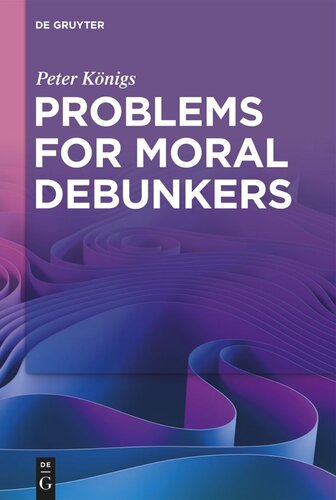

Most ebook files are in PDF format, so you can easily read them using various software such as Foxit Reader or directly on the Google Chrome browser.
Some ebook files are released by publishers in other formats such as .awz, .mobi, .epub, .fb2, etc. You may need to install specific software to read these formats on mobile/PC, such as Calibre.
Please read the tutorial at this link: https://ebookbell.com/faq
We offer FREE conversion to the popular formats you request; however, this may take some time. Therefore, right after payment, please email us, and we will try to provide the service as quickly as possible.
For some exceptional file formats or broken links (if any), please refrain from opening any disputes. Instead, email us first, and we will try to assist within a maximum of 6 hours.
EbookBell Team

4.1
80 reviewsOne the most interesting debates in moral philosophy revolves around the significance of empirical moral psychology for moral philosophy. Genealogical arguments that rely on empirical findings about the origins of moral beliefs, so-called debunking arguments, take center stage in this debate. Looking at debunking arguments based on evidence from evolutionary moral psychology, experimental ethics and neuroscience, this book explores what ethicists can learn from the science of morality, and what they cannot.
Among other things, the book offers a new take on the deontology/utilitarianism debate, discusses the usefulness of experiments in ethics, investigates whether morality should be thought of as a problem-solving device, shows how debunking arguments can tell us something about the structure of philosophical debate, and argues that debunking arguments lead to both moral and prudential skepticism.
Presenting a new picture of the relationship between empirical moral psychology and moral philosophy, this book is essential reading for moral philosophers and moral psychologists alike.